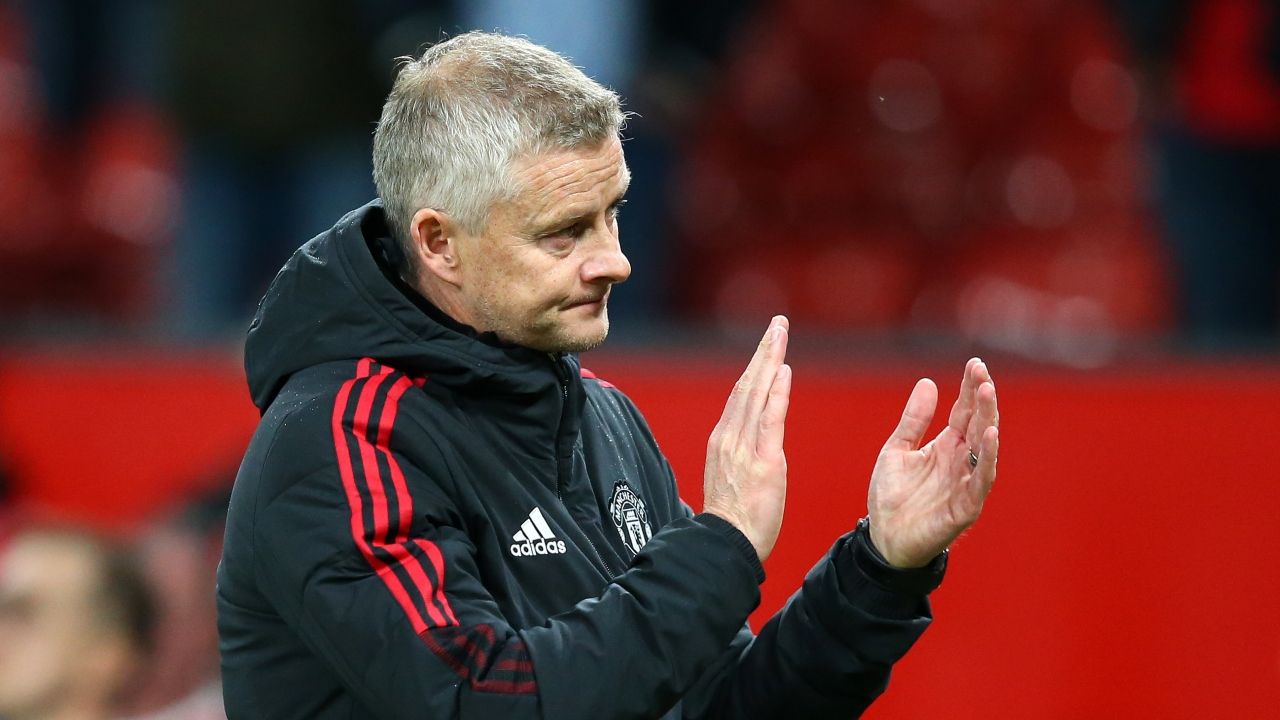Solskjaer is gone, but the main problems remain at Manchester United
It had been coming… That Ole Gunnar Solskjaer was even present in the dugout at Vicarage Road on Saturday afternoon for what proved to be a final humiliation serves as a reminder as to where the real problems at Manchester United continue to fester.
For a whole month(!) after the capitulation against Liverpool, the decision-makers at the club dithered, allowing him to dangle over the AON-sponsored mincer. It was patently clear to everyone else that the situation was beyond salvage, but no – blind faith in Solskjaer remained, the inevitable was prolonged.
It’s easy on a day like today to point to Solskjaer’s limitations and say he wasn’t up to the job; clearly, he wasn’t. But the real reason that United are, not for the first time in the post-Ferguson era, resembling an expensively assembled train wreck of a football side, lies further up the tree than the man who has just lost his job.
This is a tough watch.https://t.co/h4Zyi5hyF1
— SportsJOE (@SportsJOEdotie) November 21, 2021
United, at least on the surface, still talk a good game. There are figures at the club who, without a hint of irony, will still trot out the “biggest club in the world” line without giving so much as a second thought. Perhaps in a commercial sense, there is truth to that.
Man United’s pull under the Glazer family has continued to thrive. But in terms of football – the very thing that earned them their storied name – United lag behind Europe’s elite. It’s impossible to imagine Bayern Munich or Real Madrid tolerating a 5-0 hammering at home to a major rival, let alone allowing the manager to remain in position for another four weeks in the hope he might turn it around.
The entire situation is another glaring example of the ineptitude of those trusted by the club’s owners to make football decisions.
United’s structure is perplexing, to say the least. Ed Woodward, who will leave soon, continues to hold considerable sway on big decisions at the club. This appears to be increasingly the case with marketing guru Richard Arnold, who Woodward first met during his student days at the University of Bristol. Arnold is expected to succeed Woodward when he leaves his role. His expertise also appears to lie outside of football, which might explain the appointments of John Murtough and Darren Fletcher earlier this year.
After years of speculation that United were considering hiring a first-ever Football Director, Murtough was appointed to the role from within in April. Former midfielder Fletcher was also given the role as Technical Director at the same time. The idea, at least from the outside, was that those appointments would relieve some of the burden shouldered by Woodward and Arnold when it came to footballing decisions. United, however, still lack a credible footballing figure anywhere close to the top of their structure, with the final decisions appearing to rest with people who simply aren’t qualified to be making them.
The very fact Solskjaer was given the job on a permanent basis at United reeks of the same lack of basic understanding of how football works.
Those first weeks, it should be remembered, were glorious. The lingering negativity from Jose Mourinho’s time in charge quickly dissipated as Solskjaer’s United played some of the most thrilling, buccaneering football they had produced in years. The miraculous comeback against Paris Saint-Germain – achieved with a threadbare side – made it impossible for supporters not to get swept away by the excitement of it all. It’s important to stress that, as fans, such giddiness is perfectly acceptable. It’s why you support a club.
But those in charge of the big decisions, however, should have been cool-headed enough not get carried away, to step back and realise that holding off to the end of the season to see assess things properly, and moving for Mauricio Pochettino, would have been a better call. There was nothing to be gained by handing Solskjaer the permanent role when they did, and, inevitably, United’s form quickly collapsed after it.
Solskjaer was not the right man for the job, but it is possible to acknowledge this and the good he did while in charge. There were times, namely after the first lockdown, where his United side played brilliant football. His recruitment, generally, has been good and he leaves a stronger squad than the one he inherited. He has provided countless youngsters with first-team opportunities, seamlessly handling Mason Greenwood’s integration into the first-team picture. He has worked hard to restore some of the behind-the-scenes culture eroded in the time since Ferguson’s departure.
The simple fact is that he had taken United as far as he could. The right time for someone else to step in and build on the foundations was probably after the Europa League final defeat in Gdansk. A lack of ruthlessness and/or general understanding from above allowed it to continue to this point: where some are questioning whether Solskjaer did more bad than good.

























